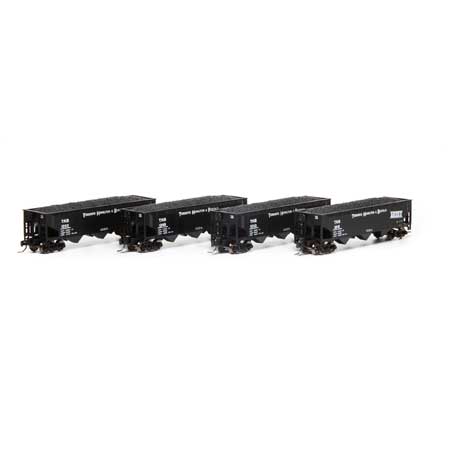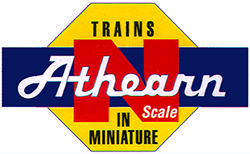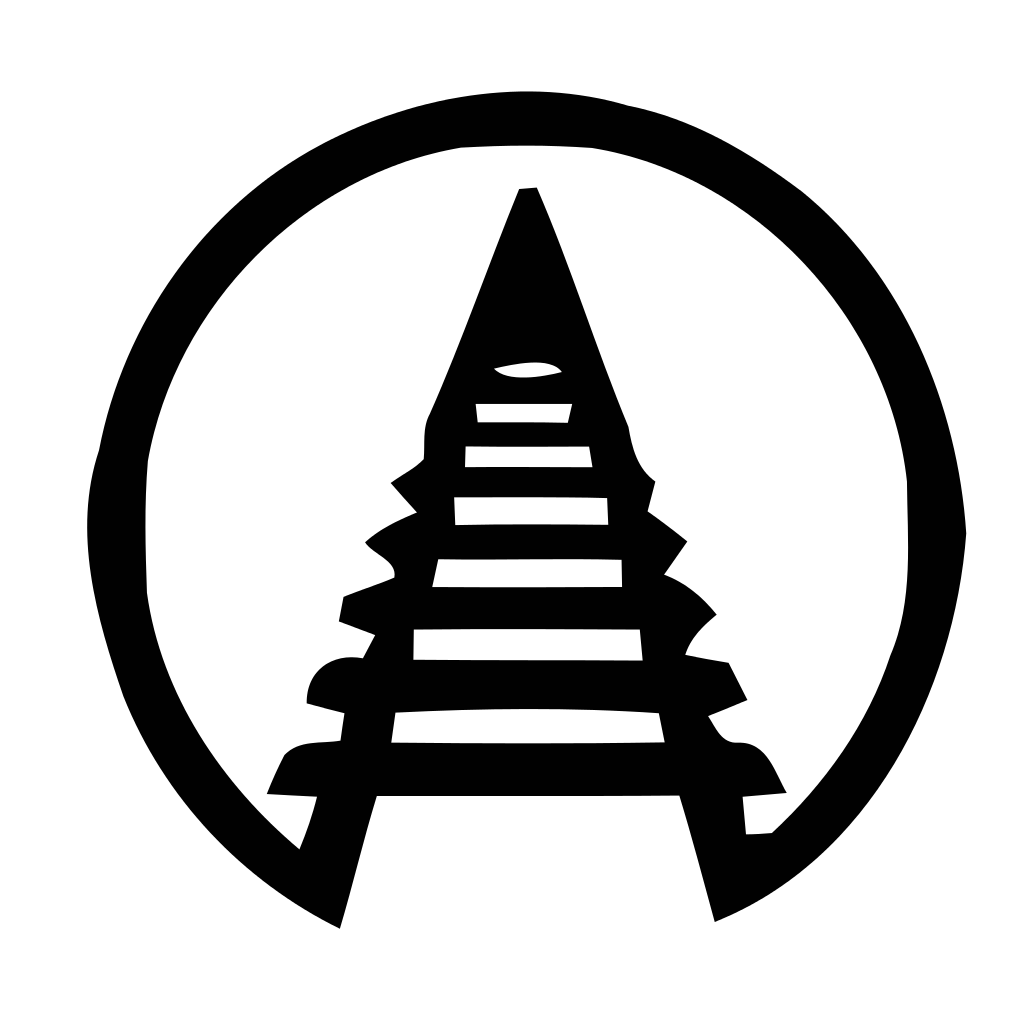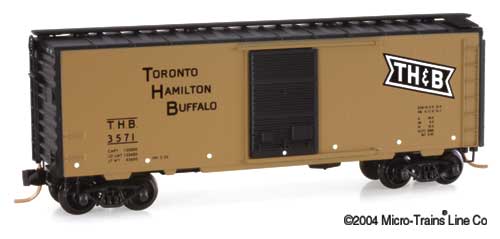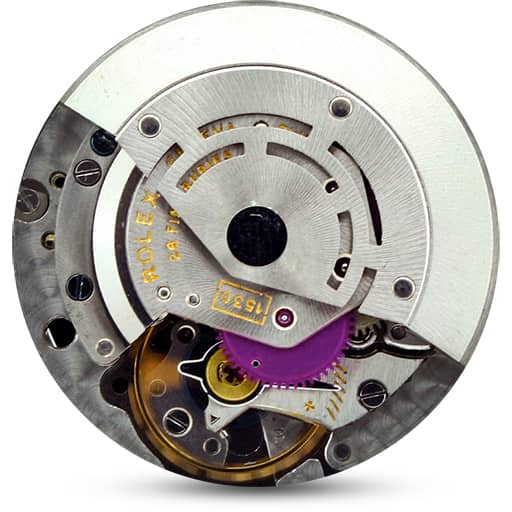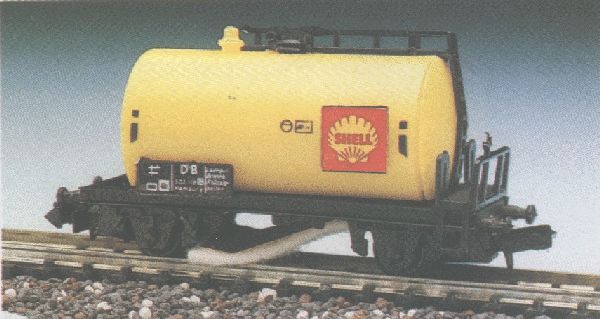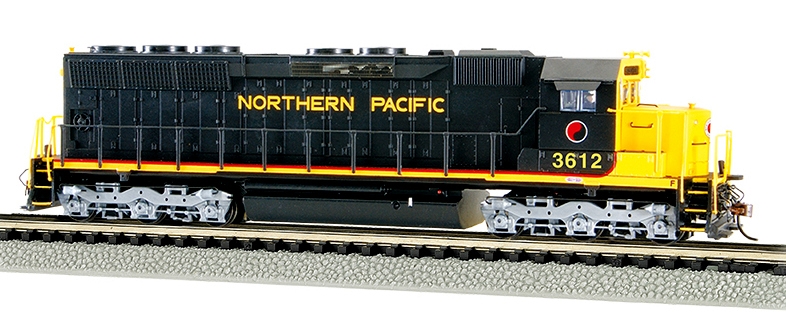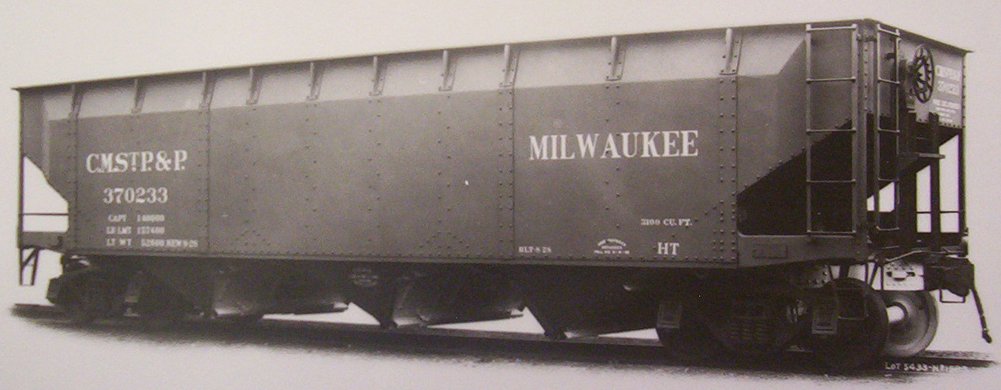Model Information: This body style was created by MDC Roundhouse and acquired by Athearn. The older MDC releases have Rapido couplers (the final few MDC releases included dummy knuckle couplers in the packaging) and the AThearn releases use Accumate or McHenry operating magnetic knuckle couplers.
Prototype History: 70 ton 3-bay offset side hoppers first appeared in the late 20s and by the late 30s had become an AAR standard design with cars being delivered from a number of builders in large quantities to railroads across the country. The last of these cars were delivered in the mid-'60s and many remained in service through the 80s.
Road Name History: The TH&B was chartered in 1884 to connect Hamilton, Ontario to Fort Erie, just across the border from Buffalo, New York. However, once construction commenced, the goals changed. Ultimately, the TH&B would run from Waterford east to Hamilton and Welland, Ontario. Two branches ran south from this line to reach the lake port cities of Port Cleburn and Port Maitland (both on Lake Erie.) Until 1932, TH&B ran a car ferry operation between Port Maitland and Ashtabula, Ohio. In total, the TH&B was 111 miles long, making it slightly shorter that Richmond Fredricksburg & Potomac. In 1895 ownership was split between Canadian Pacific and three of the New York Central Lines: Michigan Central, Canada Southern and New York Central. TH&B was an important carrier for heavy industries in the Hamilton, Ontario area.
The most modern steam power on the TH&B was a pair of 2-8-4 Berkshires (the only Berkshires on a Canadian railroad) and a pair of 4-6-4 Hudsons. Strangely, none of TH&B’s steamers were equipped with all-weather cabs which were so common in Canada. This may have been due to the influence of NYC’s mechanical department.
TH&B had completely dieselized by 1954: NW2: 4, SW9: 4, GP7: 7, GP9: 3. The three GP9’s were built with boilers for passenger service and with their air tanks mounted on the roof. The GP9’s were also built to run long-hood-forward unlike the GP7’s. This often led to consists that appeared to have the locomotives “elephant walking” when in fact they were running back to back. One of the GP7’s was destroyed in a wreck in 1980. The roster then remained the same until the end. They also never really changed their paint scheme (except for adding the logo to the cab side around 1970.)
New York Central’s share of TH&B passed to Penn Central in that merger. After the collapse of PC and the creation of Conrail, CP Rail picked up PC’s share of the TH&B in 1977. However, TH&B remained a separate railroad for another 10 years until being merged into CPR.
The most modern steam power on the TH&B was a pair of 2-8-4 Berkshires (the only Berkshires on a Canadian railroad) and a pair of 4-6-4 Hudsons. Strangely, none of TH&B’s steamers were equipped with all-weather cabs which were so common in Canada. This may have been due to the influence of NYC’s mechanical department.
TH&B had completely dieselized by 1954: NW2: 4, SW9: 4, GP7: 7, GP9: 3. The three GP9’s were built with boilers for passenger service and with their air tanks mounted on the roof. The GP9’s were also built to run long-hood-forward unlike the GP7’s. This often led to consists that appeared to have the locomotives “elephant walking” when in fact they were running back to back. One of the GP7’s was destroyed in a wreck in 1980. The roster then remained the same until the end. They also never really changed their paint scheme (except for adding the logo to the cab side around 1970.)
New York Central’s share of TH&B passed to Penn Central in that merger. After the collapse of PC and the creation of Conrail, CP Rail picked up PC’s share of the TH&B in 1977. However, TH&B remained a separate railroad for another 10 years until being merged into CPR.
Brand/Importer Information: Athearn's history began in 1938, when its founder-to-be, Irvin Athearn, started an elaborate O scale layout in his mother's house. After placing an ad selling the layout, and receiving much response to it, Irv decided that selling model railroads would be a good living. He sold train products out of his mother's house through most of the 1940s. After becoming a full-time retailer in 1946, Irv opened a separate facility in Hawthorne, California in 1948, and that same year he branched into HO scale models for the first time.
Athearn acquired the Globe Models product line and improved upon it, introducing a comprehensive array of locomotive, passenger and freight car models. Improvements included all-wheel drive and electrical contact. One innovation was the "Hi-Fi" drive mechanism, employing small rubber bands to transfer motion from the motor spindle to the axles. Another was the double-ended ring magnet motor, which permitted easy connection to all-wheel-drive assemblies. Athearn was also able to incorporate flywheels into double-ended drives.
The company produced a model of the Boston & Maine P4 class Pacific steam locomotive which incorporated a cast zinc alloy base and thermoplastic resin superstructure. It had a worm drive and all power pickup was through the bipolar trucks that carried the tender. This item was discontinued after the Wilson motor was no longer available, and was not redesigned for a more technologically advanced motor.
Athearn's car fleet included shorter-than-scale interpretations of passenger cars of Southern Pacific and Atchison, Topeka & Santa Fe Railroad prototypes. The company also offered a variety of scale-length freight cars with sprung and equalized trucks. The cars could be obtained in simple kit form, or ready-to-run in windowed display boxes. The comprehensive scope of the product line contributed to the popularity of HO as a model railroad scale, due to the ready availability of items and their low cost.
Irv Athearn died in 1991. New owners took control in 1994, but continued to follow Athearn's commitment to high-quality products at reasonable prices. Athearn was bought in 2004 by Horizon Hobby. Athearn was then moved from its facility in Compton to a new facility in Carson, California. In mid-2009, all remaining US production was moved to China and warehousing moved to parent Horizon Hobby. Sales and product development was relocated to a smaller facility in Long Beach, California.
Read more on Wikipedia and Athearn website.
Athearn acquired the Globe Models product line and improved upon it, introducing a comprehensive array of locomotive, passenger and freight car models. Improvements included all-wheel drive and electrical contact. One innovation was the "Hi-Fi" drive mechanism, employing small rubber bands to transfer motion from the motor spindle to the axles. Another was the double-ended ring magnet motor, which permitted easy connection to all-wheel-drive assemblies. Athearn was also able to incorporate flywheels into double-ended drives.
The company produced a model of the Boston & Maine P4 class Pacific steam locomotive which incorporated a cast zinc alloy base and thermoplastic resin superstructure. It had a worm drive and all power pickup was through the bipolar trucks that carried the tender. This item was discontinued after the Wilson motor was no longer available, and was not redesigned for a more technologically advanced motor.
Athearn's car fleet included shorter-than-scale interpretations of passenger cars of Southern Pacific and Atchison, Topeka & Santa Fe Railroad prototypes. The company also offered a variety of scale-length freight cars with sprung and equalized trucks. The cars could be obtained in simple kit form, or ready-to-run in windowed display boxes. The comprehensive scope of the product line contributed to the popularity of HO as a model railroad scale, due to the ready availability of items and their low cost.
Irv Athearn died in 1991. New owners took control in 1994, but continued to follow Athearn's commitment to high-quality products at reasonable prices. Athearn was bought in 2004 by Horizon Hobby. Athearn was then moved from its facility in Compton to a new facility in Carson, California. In mid-2009, all remaining US production was moved to China and warehousing moved to parent Horizon Hobby. Sales and product development was relocated to a smaller facility in Long Beach, California.
Read more on Wikipedia and Athearn website.
Item created by: CNW400 on 2020-11-10 14:58:25
If you see errors or missing data in this entry, please feel free to log in and edit it. Anyone with a Gmail account can log in instantly.
If you see errors or missing data in this entry, please feel free to log in and edit it. Anyone with a Gmail account can log in instantly.


